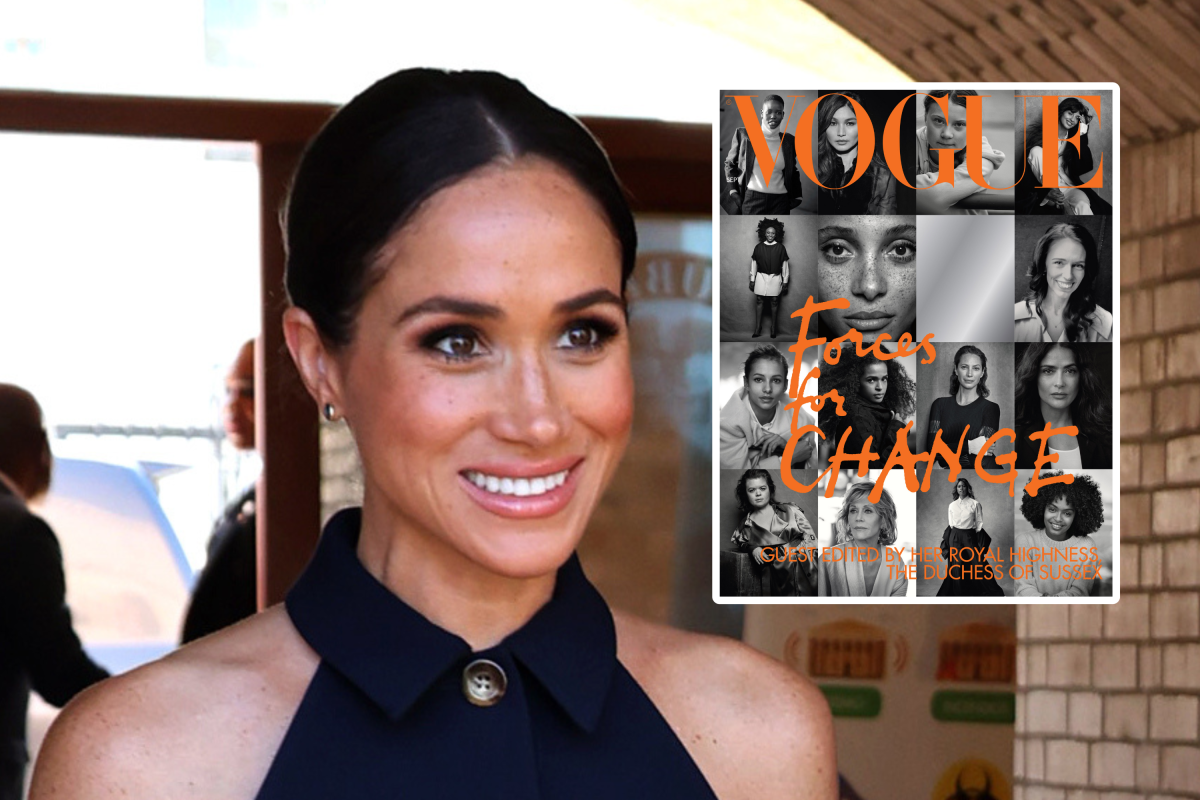In a recent commentary, journalist Amanda Plattel has taken aim at Meghan Markle‘s claims of being one of the most harassed individuals in the world.
These remarks were made during Markle’s interactions with young girls in Santa Barbara, raising eyebrows about the authenticity of her victim narrative.
Plattel questions whether Markle’s portrayal as a victim aligns with reports of her behavior towards her staff, suggesting a disconnect that warrants scrutiny.
Plattel begins by highlighting the insensitivity of Markle’s “poor me” rhetoric, especially against the backdrop of Santa Barbara’s socioeconomic struggles.
With many locals facing financial hardships, Markle’s privileged background starkly contrasts with the realities of those she addresses.
This tone-deafness only amplifies the skepticism surrounding her claims.
The timing of Markle’s statements is also suspect, coinciding with ongoing allegations regarding her challenging demeanor, which further complicates her self-portrayal as a victim.
Recent reports from sources close to the Sussexes depict Markle in a less than flattering light, describing her as a “dictator in high heels” in a piece by The Hollywood Reporter.
This characterization suggests a pattern of demanding behavior that has reportedly left her staff feeling intimidated.
Allegations have emerged that Markle disregarded her team’s advice, leading to emotional distress among experienced employees, a situation that raises serious questions about her treatment of those who worked for her.
Despite the Sussexes’ denials of these claims, Plattel argues that such rebuttals do little to alter the persistent perception of Markle as “Duchess Difficult.”
This narrative has been around since Markle began her relationship with Prince Harry, with notable incidents like her request to wear a $13 million emerald tiara at her wedding, which was ultimately rejected by Queen Elizabeth II.
Such conflicts between Markle’s demands and royal protocol have only fueled public perceptions of her as entitled.
Moreover, Plattel draws attention to allegations of bullying during Markle’s brief tenure as a working royal.
Reports indicate that she allegedly dismissed personal assistants from her household, with one aide reportedly stating, “It is not my responsibility to pamper individuals.” These claims prompted Buckingham Palace to launch an external investigation, the findings of which remain undisclosed, intensifying speculation and rumors about Markle’s conduct.
The significant turnover of Markle’s staff since her marriage to Harry in 2018 has led to the formation of a group dubbed the “Sussex Survivors Club,” comprising at least 18 former high-profile aides.
This drastic attrition starkly contrasts with the stable employment histories of other senior royal women, further undermining Markle’s assertions of victimization.
In his memoir “Spare,” Prince Harry accused other royals, particularly Camilla, of undermining him and Meghan.
The Sussexes have consistently framed their narrative as one of victimhood, alleging a conspiracy by the British media and royal family to discredit them.
However, Plattel dismisses these claims, arguing that the royal family has more pressing issues to contend with than orchestrating a smear campaign against Meghan.
Plattel suggests that Meghan should reflect on her own actions before perpetuating her victim narrative.
She emphasizes the importance of accountability, urging Markle to examine her role in the ongoing drama rather than solely focusing on her perceived victim status.
This perspective challenges the narrative that Meghan has constructed around her experiences within the royal family.
Amidst these controversies, Steve Davies, Meghan Markle’s former bodyguard, has expressed sympathy for her, shedding light on the challenges she faced when transitioning from a B-list celebrity to a member of the British royal family.
Davies likened her life in England to existing in a “goldfish bowl,” noting the immense media scrutiny and pressure that accompanied her marriage to Prince Harry in 2018.
Davies recounted the stressful environment they navigated, filled with aggressive paparazzi and even drones.
He voiced concerns for Meghan’s safety, recalling fears that she could meet a tragic fate similar to that of Princess Diana.
While he defended her character, describing her as respectful and empathetic, he acknowledged the stark contrast between her public persona and private reality.
The ongoing debate about Meghan’s character remains polarized.
Insiders have described her as controlling and relentless, while friends assert they have never witnessed any negative behavior.
The label “Duchess Difficult” continues to haunt her, often viewed as a palace-created slur aimed at tarnishing her image.
In her podcast, “Archetypes,” Meghan has discussed workplace boundaries, asserting that establishing clear expectations does not equate to being difficult.
This aligns with her previous denial of bullying allegations, which her legal team labeled as a “calculated smear campaign.” As the public narrative around her evolves, reactions remain deeply divided, with detractors emphasizing former staff accounts while supporters highlight her charitable endeavors.
As Meghan Markle continues to navigate the complexities of fame, family, and media scrutiny, her story resonates with many.
The contrasting perceptions of her character underscore the challenges she faces as a royal family member, revealing broader themes of respect, boundaries, and the harsh realities of public life.
The discourse surrounding her impact on the modern monarchy and her evolving position within it remains as relevant as ever.










